Is it common for shops in Ho Chi Minh City to refuse to accept money transfers from customers at the moment?
Many shops still do not accept transfers
Recently, social networks have shared information that some shops and small businesses have announced and asked customers to avoid recording transfer content related to the purchase or sale of goods or services such as purchases, deposits, payments, etc. to avoid taxes.
Instead, customers can write different content such as "Happy Birthday"; "Happy Wedding"; "Happy Birthday"; "Advance love, pay by eye"; "Send to you so you remember I still exist"... Some restaurants and stores even completely refuse to accept payment by bank transfer, only accepting cash, making many customers feel inconvenient.
According to Thanh Nien in Ho Chi Minh City, there are still some restaurants that do not accept money transfers from customers, but this situation is not common. Among them, there are restaurants that have long been known by many customers but do not accept money transfers, and there are also restaurants that have only recently announced that they do not accept money transfers.
A popular restaurant in District 8 announced that it would not accept money transfers while "waiting to complete business procedures" - PHOTO: CAO AN BIEN
The famous coffee shop in Phu Nhuan District has always said no to money transfers. The reason, according to the owner, is that he is not familiar with technology and has a large number of customers, so he only accepts cash for convenience.
Meanwhile, there are also some restaurants that have only recently announced that they do not accept money transfers. At a popular restaurant in District 8, a new notice was posted in front of the food counter: "The restaurant does not accept money transfers". When asked about the reason, a person at the restaurant said that they were in the process of "completing business procedures" so they only accepted cash.
Coffee shop in Phu Nhuan District does not accept money transfers - PHOTO: CAO AN BIEN
Mr. DQS (25 years old, living in Go Vap District) said that recently when he visited a restaurant on Nguyen Thai Son Street (Go Vap District), he saw a notice hanging on the side of the restaurant: "The restaurant does not accept bank transfers". He occasionally visits this restaurant, which used to accept bank transfers, but only refused customers to pay by this method a few days ago.
"I asked around and was told that the restaurant is currently monitoring new tax regulations, so not accepting money transfers from customers is considered a temporary solution. They still sell rice through food delivery apps and said they will wait for specific instructions to adjust accordingly," said Mr. S.
Restaurant in Go Vap District does not accept money transfers - PHOTO: DUONG LAN
Interesting announcement from a coffee shop in Ho Chi Minh City
Meanwhile, according to a survey by Thanh Nien reporters , most shops in Ho Chi Minh City are flexible between different payment methods to serve customers' needs.
A shop that accepts bank transfers in Binh Thanh District even posted a notice that delighted many passersby: "Accepting bank transfers, no tax evasion."
The restaurant did not share more about this notice board, however, some passersby and customers expressed surprise. Among them, Mr. Duc Huy (26 years old, living in Binh Thanh District). He passes this area almost every day on his way to work, and was delighted when he accidentally saw the board.
"I find it quite special. Most restaurants only notify when they do not accept transfers, but this notification is a notification of accepting transfers, with the added line "no tax avoidance". Recently, I have been surfing social media and seen many cases of restaurants not accepting transfers to avoid taxes, so this notification is quite impressive to me," he shared.
A coffee shop in Binh Thanh District and the notice board "Accepting transfers, no tax avoidance" makes many people excited - PHOTO: CAO AN BIEN
Mr. Huy added that most of the restaurants he frequents accept money transfers. According to him, restaurants refusing customers to transfer money to avoid taxes is not a common situation in Ho Chi Minh City.
Tran Nguyen Chuc Linh (26 years old, living on Rach Bung Binh Street, District 3) said that whenever she goes to a restaurant, she usually pays by bank transfer for convenience. However, she has encountered many awkward situations when eating at a cheap restaurant where the owner only accepts cash.
"Those times, luckily I had my sister or friends or colleagues to go with me, otherwise I wouldn't know what to do if I went alone. I think restaurants should diversify payment methods for customers to retain them, otherwise, restaurants that only accept cash, for someone like me who rarely carries much money in my wallet, I would be afraid to stop by. Very inconvenient!", she shared.
The cafe accepts bank transfer payment from customers - PHOTO: CAO AN BIEN
The owner of a newly opened noodle shop in District 8 shared his opinion that in today's digital age, if a shop does not adapt and grasp the needs of customers, it will be difficult to survive. That is why, besides the quality of the food, he also focuses on the service at the shop, always being flexible with payment methods to "please" customers.
What do lawyers say?
Lawyer Tran Xuan Tien, Head of Dong Doi Law Office, Hanoi Bar Association, said that from a legal perspective, the act of refusing to pay by bank transfer or asking customers to write transfer content that does not reflect the true nature of the transaction in order to conceal revenue is a form of tax evasion.
According to the provisions of the 2019 Tax Administration Law, individuals and organizations are obliged to fully, honestly and accurately declare their revenue, expenses and related tax obligations. If they intentionally lie or conceal information to avoid declaring income, it is a violation of the law.
In addition, the act of instructing customers to record false transfer information can also be considered tax fraud, and depending on the severity of the violation, the perpetrator may be subject to administrative sanctions or even criminal prosecution under the provisions of Article 200 of the 2015 Penal Code (amended and supplemented in 2017) for tax evasion.
"I think that tax management is now gradually tightening thanks to technology tools and big data. Therefore, the above-mentioned law-evading behavior is not only unsustainable but also poses great legal risks. In the long term, transparent business and strict compliance with tax obligations not only help protect the legitimate rights of business households but also contribute to building a fair and healthy business environment," said Mr. Tien.
Lawyer Tien recommends that business households should record and fully declare revenue, use legal invoices and documents, and make transparent payments, especially via bank transfer or other methods that can be reconciled.
"Business households should avoid acts such as hiding revenue or recording incorrect transfer information because they are easily considered tax evasion and can be severely punished or even prosecuted. Transparent business not only complies with the law but also protects one's reputation and long-term interests," the lawyer advised.
As Thanh Nien reported, a representative of the Tax Department of Region I (managing Hanoi and Hoa Binh ) said that the act of hanging a sign "only accepting cash" or writing ambiguous transfer content, for example "paying loan", "coffee fee", "shipping fee"... to make it difficult for authorities to determine revenue does not reduce tax obligations, but on the contrary can become a sign of suspicion for the act of hiding revenue.
In some cases, sellers request to collect additional money from buyers if payment is made by bank transfer, which not only affects the buyer's rights but also shows signs of violating the law.
Source: https://thanhnien.vn/nhan-chuyen-khoan-khong-ne-thue-quan-nuoc-o-tphcm-gay-sot-khi-nhieu-noi-chi-nhan-tien-mat-185250619134542535.htm


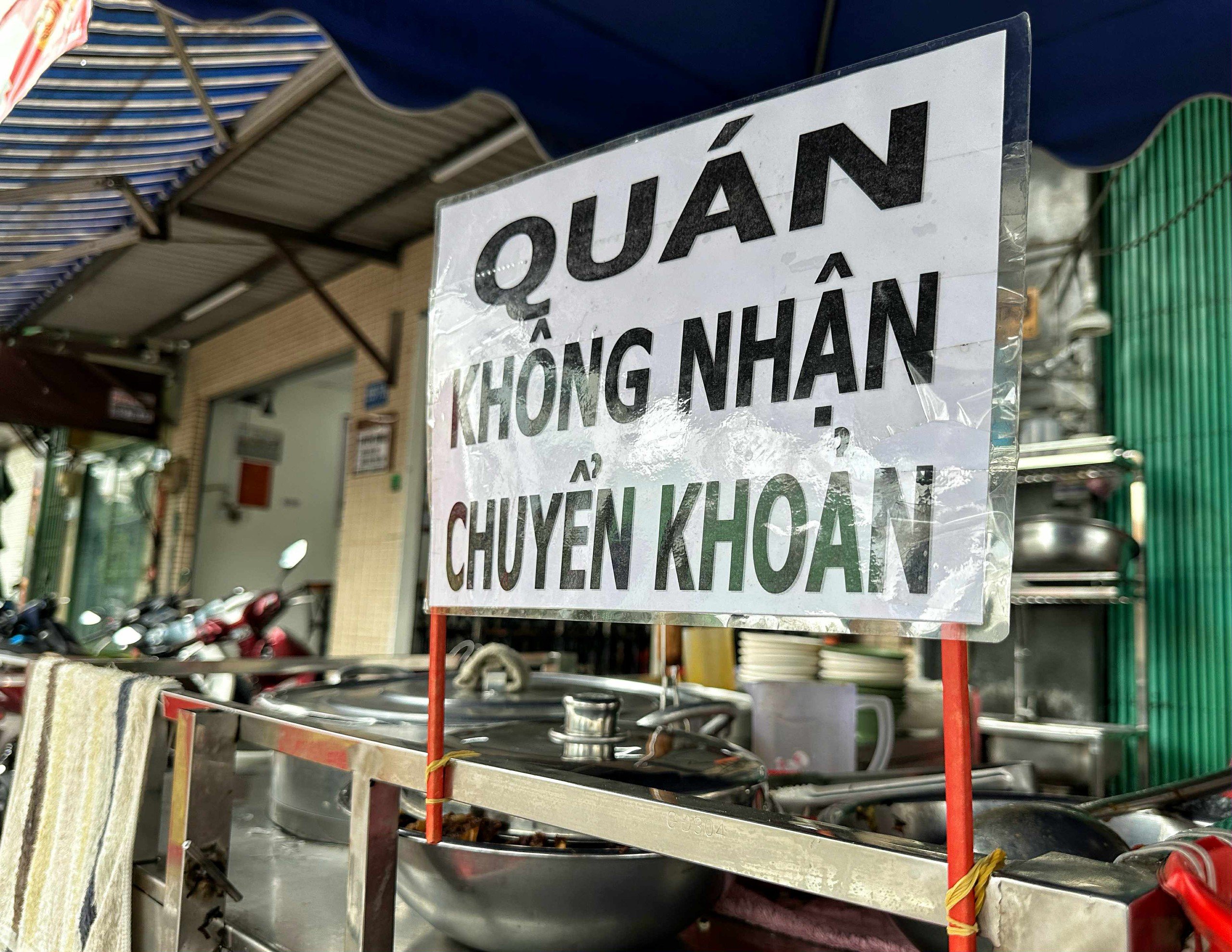
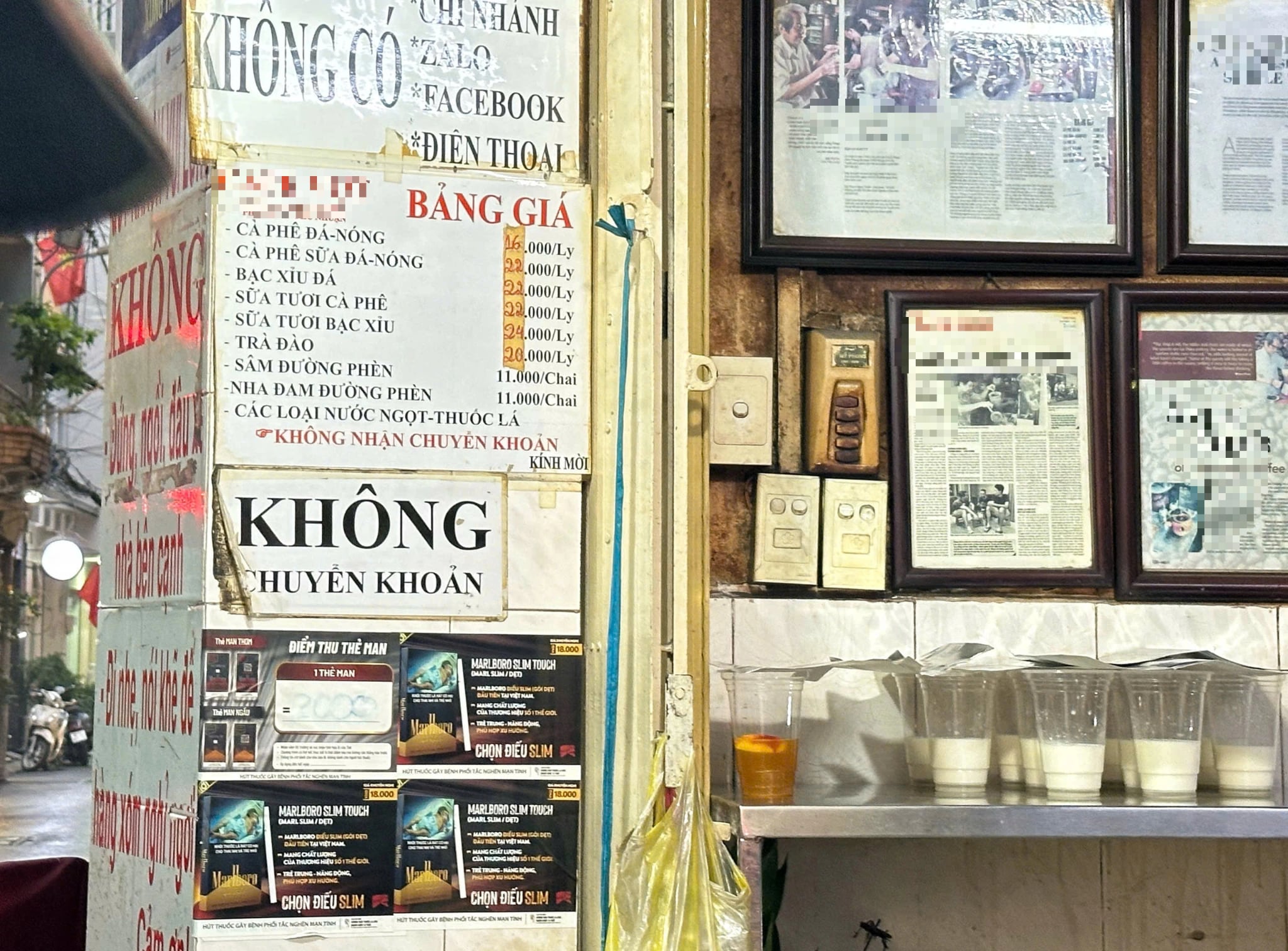
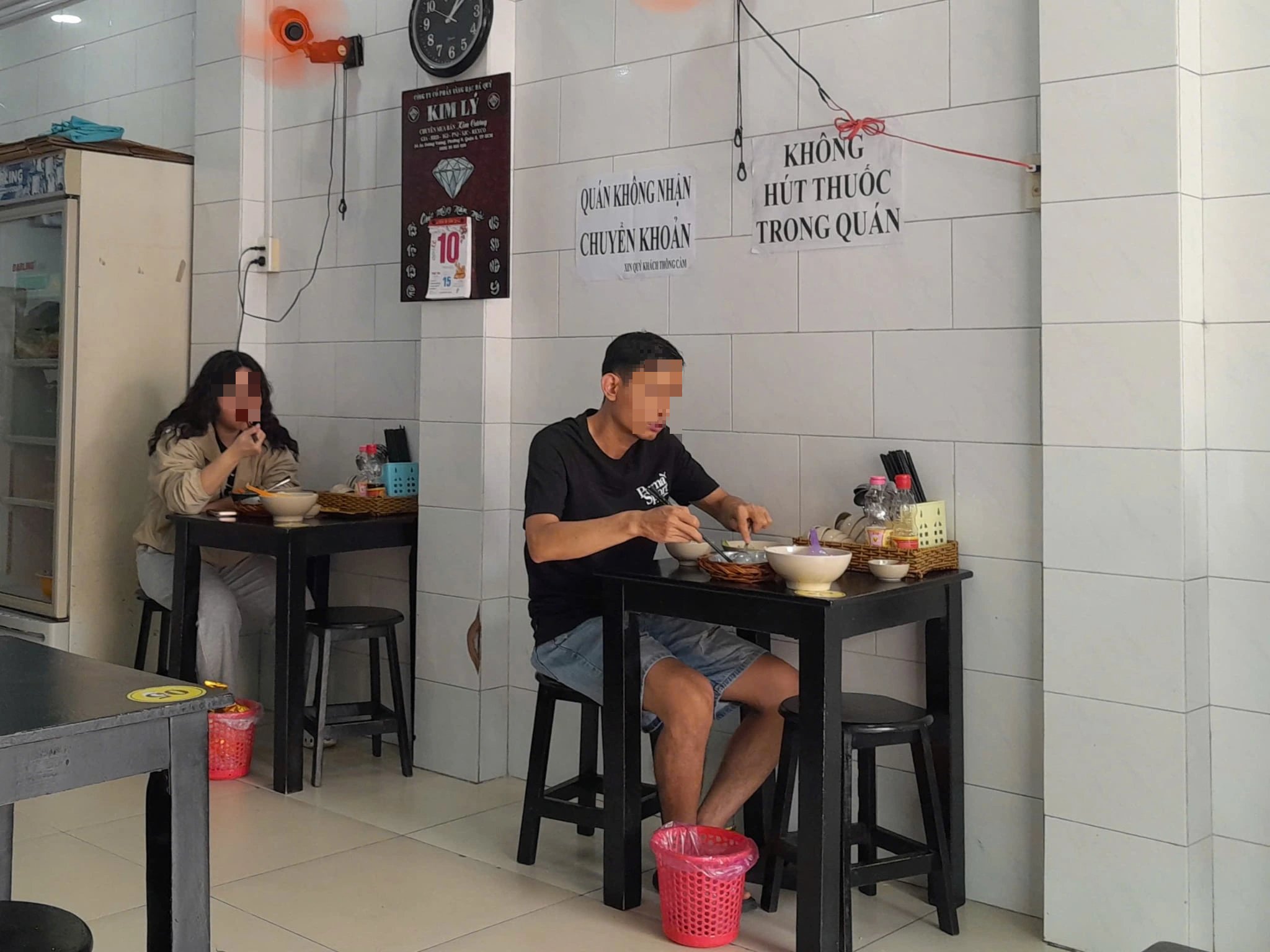
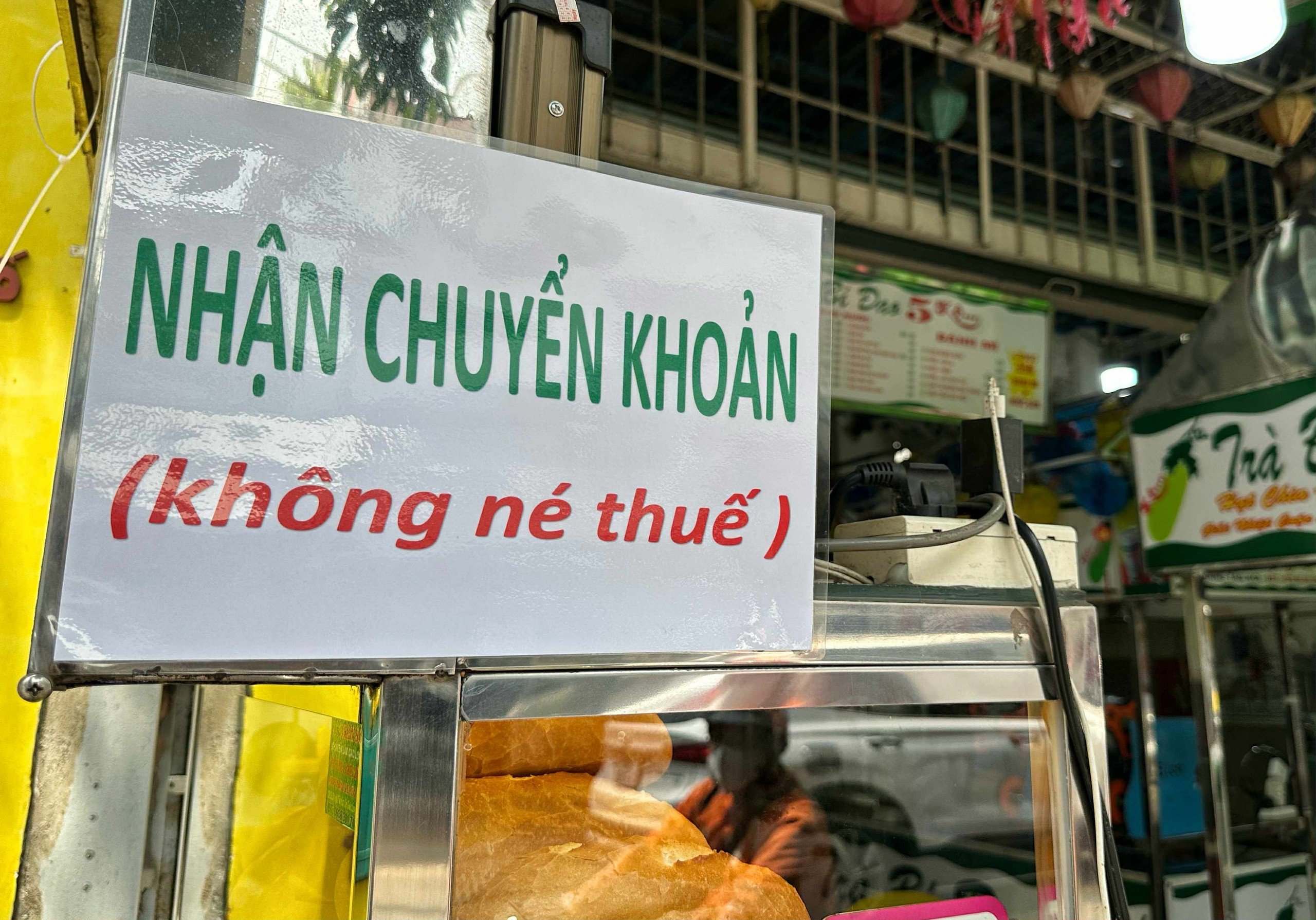
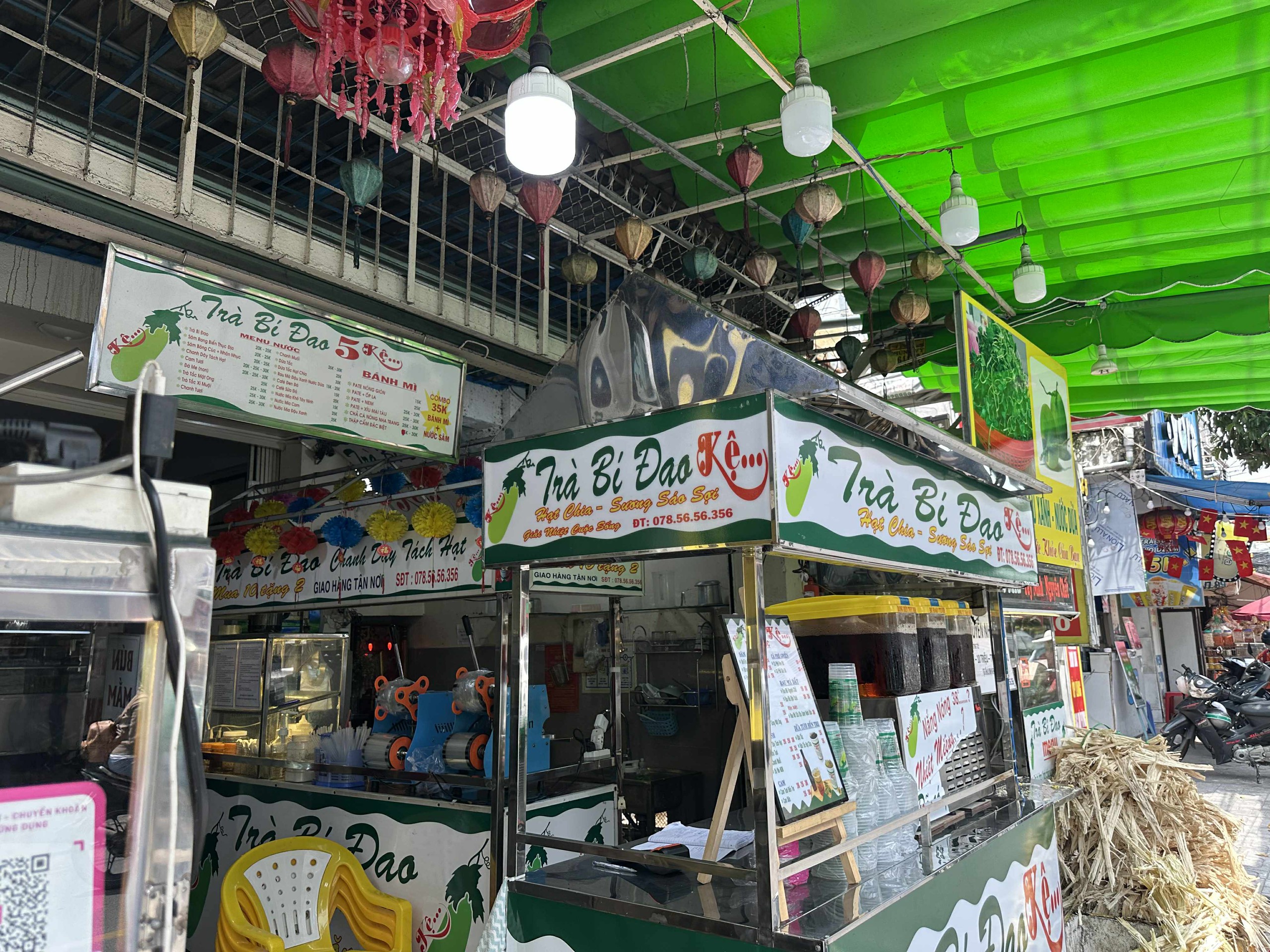






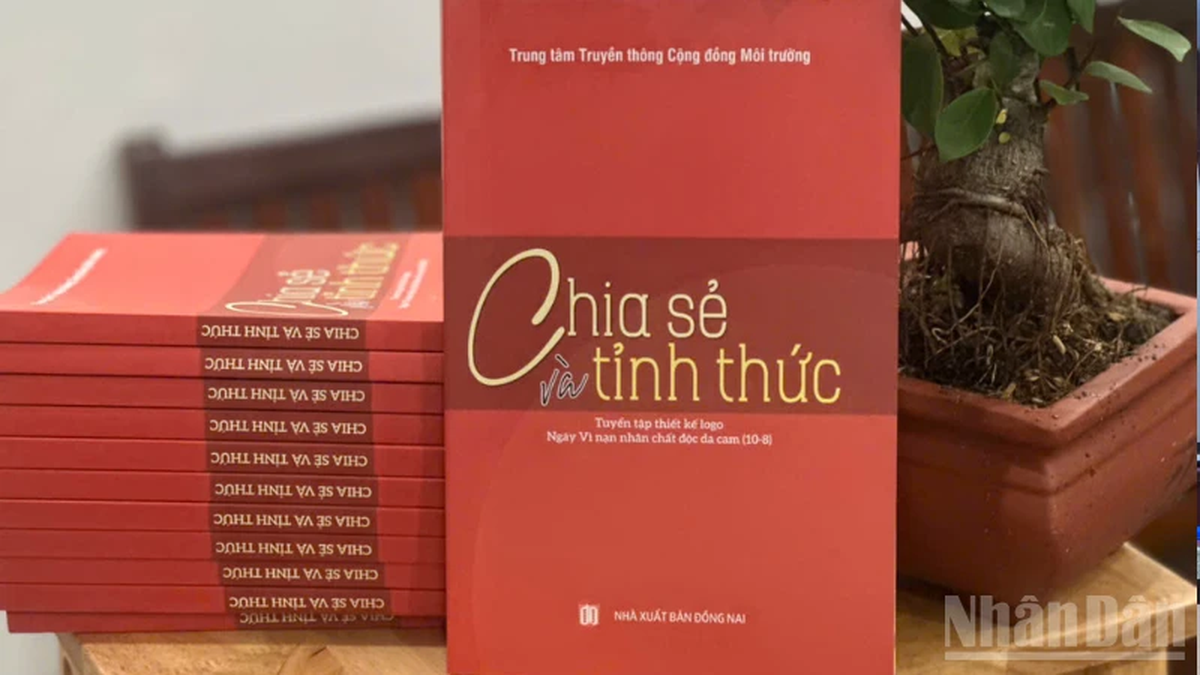
















![[Photo] Nghe An: Provincial Road 543D seriously eroded due to floods](https://vphoto.vietnam.vn/thumb/1200x675/vietnam/resource/IMAGE/2025/8/5/5759d3837c26428799f6d929fa274493)




![[Photo] Discover the "wonder" under the sea of Gia Lai](https://vphoto.vietnam.vn/thumb/1200x675/vietnam/resource/IMAGE/2025/8/6/befd4a58bb1245419e86ebe353525f97)



























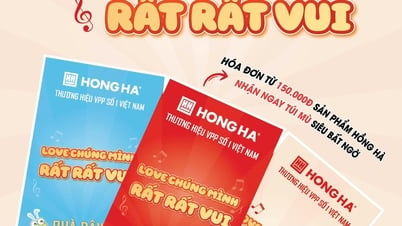












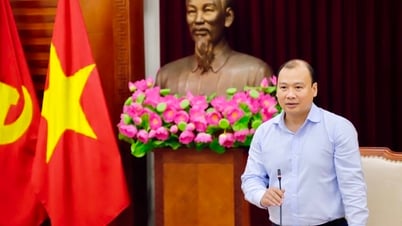























Comment (0)